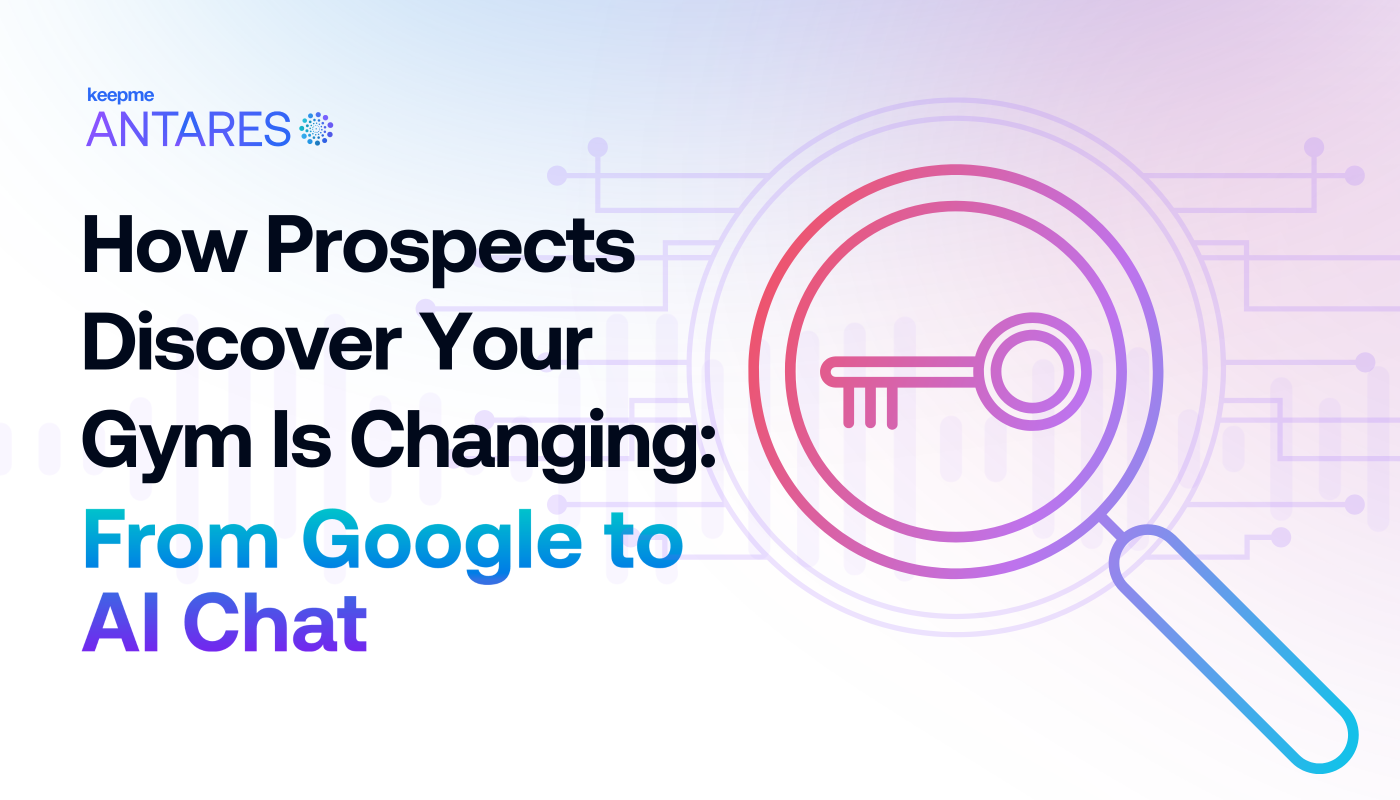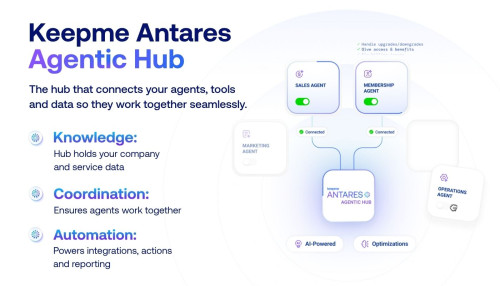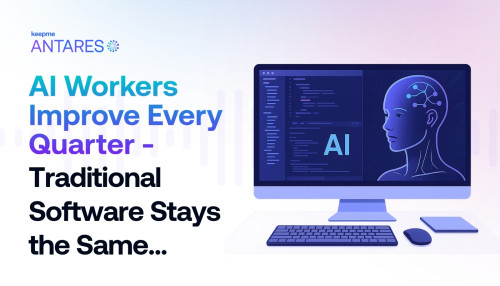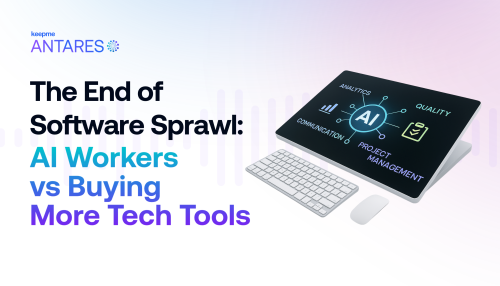Picture this: a potential member has already chosen their gym. They’ve compared local options, reviewed facilities, checked prices, and even seen trial offers. The surprising part is they never landed on your website.
This is not a theoretical scenario. Across every market, consumers are relying on AI conversations rather than Google searches to explore their fitness choices. They are asking in-depth questions about class timetables, staff qualifications, childcare options, and contract terms. AI then delivers tailored recommendations that often include pricing details and offers. Meanwhile, most fitness businesses remain completely unaware that these conversations are taking place.
The Hidden Shift in Search Behaviour
Operators still chase Google rankings and traffic, but the ground has shifted. Search behaviour is moving away from traditional engines and toward AI-driven discovery. The statistics are striking. More than eight in ten AI users prefer AI-based search over typing queries into Google. Around three-quarters of younger consumers say they trust AI answers more than Google’s results. Among those who use ChatGPT, over three-quarters treat it as a search engine and nearly one in four prefer it outright to Google.
This is not a fringe audience of tech hobbyists. Ninety-one percent of consumers now use chatbots for research, and nearly two-thirds interact with an AI chatbot daily. ChatGPT alone surpassed 200 million weekly active users at the end of 2024. Between April 2024 and March 2025, AI chatbot visits rose by 81%. The broader trend is even more telling: 60% of traditional Google searches now conclude without any click-through to a website. People get their answers directly from AI or from Google’s own AI-generated summaries.
Why AI Search Works Differently
AI search does not follow the same rules as Google. A traditional search engine expects the user to piece together information from multiple sites after typing a keyword phrase like “gyms near me.” By contrast, an AI query is conversational and contextual. Someone might ask, “I’m looking for a welcoming gym with flexible evening classes and affordable pricing,” and the AI responds with a direct recommendation, complete with trial offer details and follow-up clarification on childcare or contract length.
In other words, Google makes the user a researcher. AI plays the role of adviser.
The New Path to Discovery
For decades the customer journey was predictable: search, click a website, gather information, contact the business, and eventually sign up. AI disrupts that flow. Today the funnel looks more like: ask a question, receive a recommendation, take action.
To illustrate, consider the sort of questions being asked:
– A Liverpool prospect wants a gym offering Zumba and HIIT classes, a swimming pool, sauna, membership breakdown, contract details, and guest pass policies.
– A London lifter is searching for bodybuilding-friendly clubs, asking specifically about deadlift platforms, monolifts, specialty bars, hours of operation, and coaching services.
– A Bristol parent requests gyms that combine adult group classes with quality childcare and youth programmes.
Previously, each of these searches would scatter across multiple websites, giving operators a chance to make an impression. Now AI often condenses the results into one or two specific options. Your business might never appear in that conversation, no matter how strong your Google presence.
The Traffic Reality
The impact on traffic is already visible. When Google launched AI-powered summaries, click-through rates fell to just 8% compared to 15% on queries without AI answers. Some studies show drops of up to 70% in organic clicks when AI summaries appear. Even paid campaigns see diminished performance, with a 12% reduction in clicks.
This is not just a Google issue. Platforms such as Perplexity AI are exploding in usage, processing nearly 800 million queries in May 2025 with 20% monthly growth. More and more, consumers bypass websites entirely, relying on AI conversations to make decisions.
The consequences for operators are stark: fewer visitors even when rankings are strong, fewer opportunities to showcase photos and testimonials, loss of control over messaging, and reduced lead capture through organic traffic.
From SEO to GAIO
As SEO loses ground, a new discipline emerges: Generative AI Optimisation, or GAIO. Instead of trying to rank on a search results page, GAIO is about making your business visible in AI-generated responses.
That requires content that AI systems can digest and synthesise. Factual details about services, prices, schedules, and unique features perform far better than generic copy. Consistency across business listings is critical, since AI cross-references multiple sources. Authority also matters: research, guides, and authoritative insights increase your odds of being cited.
What Operators Should Do
The window to secure early advantage is still open. A smart first step is to test your current visibility. Ask ChatGPT or Perplexity about gyms in your city using realistic prompts such as “best family-friendly gyms” or “gyms with professional coaching.” See if your brand appears and why.
Next, audit all online platforms. Your Google Business Profile, Facebook, Yelp, and directories must be up-to-date with services, trainer credentials, schedules, and unique offerings. Expand descriptions in your business profiles so AI agents can surface those details.
Beyond that, create conversational content that mirrors the way people phrase queries. Instead of focusing on “gym near me,” write content that directly answers questions like “best gym for working professionals” or “fitness centre with childcare in [city].” Encourage detailed reviews that highlight specific experiences, since AI increasingly weighs review sentiment. Position your trainers, programmes, and outcomes with specificity and authority. Over time, publish original data and insights that AI agents can cite. Partnerships with community organisations and complementary businesses also increase your footprint in AI-generated recommendations.
The Competitive Edge
Traditional search volumes are already projected to fall by a quarter by 2026, with AI systems managing the majority of routine information queries. Those who act now will enjoy outsized visibility as recommendations compound. Each mention reinforces the next, creating momentum that competitors will struggle to match.
Winning in this environment is not just about being listed. It is about being the definitive choice that AI systems put forward as the obvious answer in your market.
The Decision Point
The industry is at a turning point. Younger consumers are permanently shifting how they discover and evaluate services. Operators can continue chasing SEO while prospects increasingly get answers elsewhere, or they can reposition to show up where decisions are actually being made.
The businesses that will thrive are those that AI consistently highlights as the right fit for the prospect’s needs. This transition is happening regardless of operator readiness. The real question is whether you will take advantage of the change or allow competitors to become the names AI recommends in your place.
---3.png)




